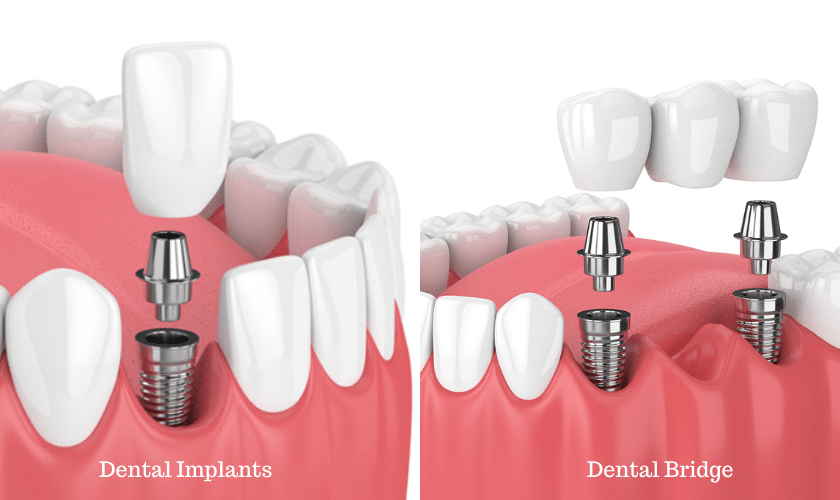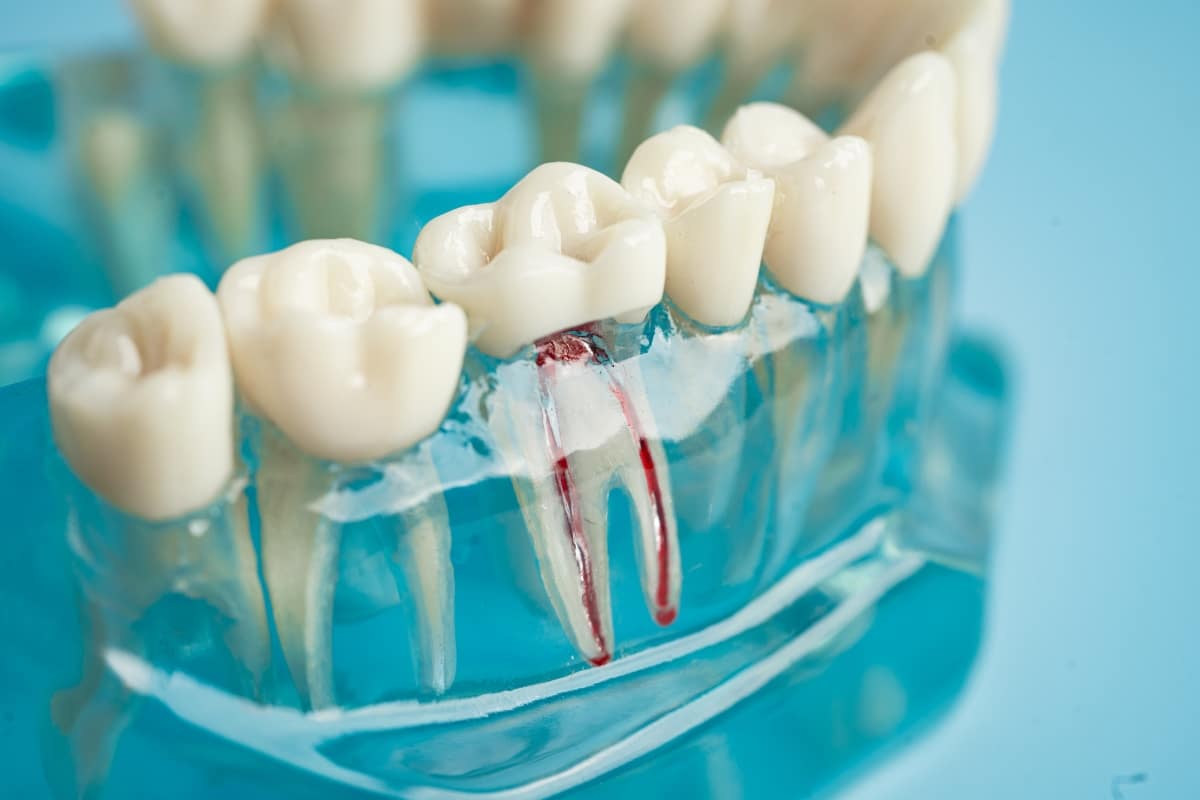Same-day treatments are available.
Why Choose a Dental Bridge Over Dental Implants

In the realm of modern dentistry, there are several options available to address missing teeth and restore your smile’s functionality and aesthetic appeal. Two popular choices are dental bridges and dental implants. Each has its own set of advantages and considerations. In this comprehensive guide, we’ll delve into the reasons why you might opt for a dental bridge over a dental implant.
Understanding Dental Bridges
Let’s start by understanding what a dental bridge is and how it works. A dental bridge is a fixed prosthetic that fills in the space left by one or more lost teeth by spanning the space between them. It typically consists of two or more crowns for the teeth on either side of the gap (abutment teeth), with a false tooth (pontic) in between.
Advantages of Choosing a Dental Bridge:
Cost-Effectiveness:
One of the primary advantages of opting for a dental bridge is its affordability compared to dental implants. Dental bridges generally involve less extensive surgical procedures, making them a more budget-friendly option for many patients.
Non-Invasive Procedure:
Unlike dental implants requiring surgical placement into the jawbone, getting a dental bridge typically involves minimal discomfort and a shorter recovery period. This makes it an appealing choice for individuals who prefer non-invasive dental procedures.
Quicker Treatment Time:
Dental bridge procedures usually require fewer visits to the dentist and can be completed in a shorter timeframe compared to dental implants. For those seeking a faster solution to replace missing teeth, a dental bridge may be the preferred option.
Preservation of Adjacent Teeth:
Dental bridges rely on adjacent teeth for support, which means they help prevent the shifting of neighboring teeth into the gap left by the missing tooth. This can contribute to better overall oral health by maintaining the alignment of your teeth.
Suitable for Certain Cases:
In some cases where the bone density in the jaw is insufficient to support a dental implant or when a patient is not a suitable candidate for surgery, a dental bridge may be the recommended treatment option.
Factors to Consider:
Dental bridges have a lot of advantages, but before choosing one, you need to think about a few things:
Longevity:
While dental bridges can last for many years with proper care, they may not be as durable as dental implants, which are designed to be a permanent solution. Regular dental check-ups and maintenance are crucial for ensuring the longevity of your dental bridge.
Impact on Adjacent Teeth:
The preparation of adjacent teeth to support the dental bridge involves removing a portion of their enamel. While this is necessary for the bridge to fit securely, it can weaken the structure of the natural teeth over time.
Aesthetics:
While dental bridges can effectively restore the appearance of your smile, they may not offer the same level of aesthetics and natural feel as dental implants, which closely mimic the look and function of natural teeth.
Ultimately, choosing a dental bridge over a dental implant depends on various factors, including your budget, oral health status, treatment preferences, and long-term goals. Consulting with a qualified dentist is crucial to evaluate your specific needs and determine the most suitable treatment option for you.
Suppose you’re looking for a cost-effective, non-invasive solution with quicker treatment time and suitable for certain cases. In that case, a dental bridge may be the ideal choice for restoring your smile and improving your overall oral health. However, it’s essential to weigh the pros and cons carefully and make an informed decision based on professional guidance and personalized recommendations.
Remember, regardless of which option you choose, maintaining good oral hygiene practices and attending regular dental check-ups are key to preserving the health and longevity of your smile for years to come.
For more information and personalized guidance on dental bridges and dental implants, schedule a consultation with your trusted dentist today.

7 Foods and Drinks to Avoid After Professional Teeth Whitening in Cypress

What to Expect After a Root Canal Treatment in Cypress



